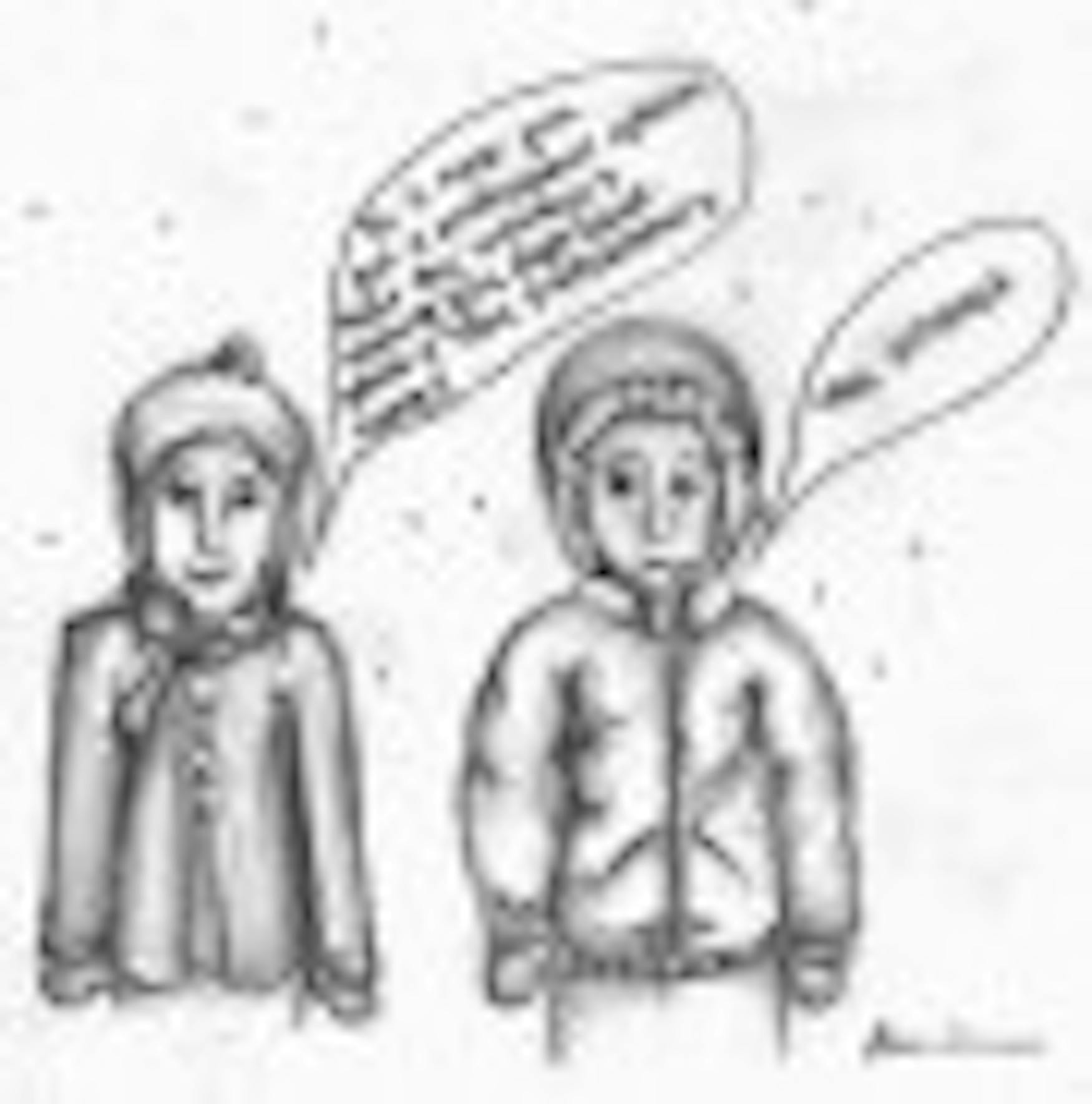Avoid false diagnosis of seasonal depression
Lately, complaints about the weather have been the talk of campus. Sure, the subject comes in handy when you run into an awkward acquaintance you haven't seen since last semester. I am perpetually grateful when, every January, the question "So, how about that weather?" becomes a genuinely interesting conversation starter. One of the downsides to deep winter, though, besides the bitter cold and hazardous snowfall, is the yearly craze over seasonal depression.
Almost nothing is worse than stepping outside after your 3:10 to 4:30 p.m. class only to find the sun dipping away into darkness. And, yes, it's annoying when the shuttles run late and when descending the hill in East Quad is indeed a daily peril.
But it seems as though we often confuse the clinical condition seasonal affective disorder with our general dislike for the winter. In the same way, many people throw around words like insomniac and alcoholic casually, disregarding their clinical usage. The obvious problem with this habit is the "cry wolf" possibility of these terms to lose their true meaning.
SAD is a mood disorder that affects individuals when external factors resulting from the change in season trigger hormonal changes in the body. Reduced daylight in the winter months causes the brain to produce less serotonin (a neurotransmitter that affects mood), which in turn leads to changes in mood and behavior.
While SAD is relatively uncommon, I have heard quite a few people say that they believe they suffer from the condition. And though many of these individuals are no doubt exaggerating, this widespread opinion may also be attributed to lack of information.
This culture of self-diagnosis is undeniably perpetuated by the Internet. It is all too easy to surf through MayoClinic.com or WebMD.com and diagnose yourself with a devastating medical condition based on a few familiar symptoms. Thanks to the Internet, medical knowledge has become accessible to the point of saturation. Additionally, individuals also often forgo trained medical analysis in order to save the cost of a doctor's visit. This means that faulty self-diagnoses are bound to occur.
Combined with the accessibility of these websites, the result of this medical misinformation is the spread of an Internet-induced hypochondria. College students, who tend to rely on the Internet for information more than other subsets of the population, are particularly prone to this.
Some of the haze surrounding online medical information comes from poorly defined terms and a lack of specificity. FamilyDoctor.org writes in its description of seasonal depression that "between 4% and 6% of people in the United States suffer from SAD" while "another 10% to 20% may experience a mild form of winter-onset SAD." Writers of the entry do not explain what they mean by a mild versus a severe experience of SAD or analyze the significant gap in data.
With insufficient information, a reader might assume that 20 percent of the population experiences seasonal depression severe enough to warrant medication, while the fact remains that most people with the disorder do not resort to drugs to control their condition.
Additionally, medical reference websites often oversimplify the causes and conditions behind physical and psychological problems. They use layman's terms and vague language that any Internet user can understand.
It is easy, therefore, to mistake ordinary behavior for symptoms linked to these conditions. WedMD.com, one of the most well-known medical reference websites, provides little technical information in its description of seasonal depression. According to the website, "the decreased levels of energy, difficulty concentrating, fatigue, increase in appetite, increased desire to be alone, increased need for sleep and weight gain" are all symptoms of the disorder.
However, I personally experienced almost all of these symptoms during finals last semester and, as far as I know, I do not suffer from seasonal depression.
SAD only affects a small fraction of the population, so chances are you're probably just bummed about the slush and the frost and not actually suffering from a diagnosable psychological disorder.
Either way, increased exposure to sunlight or artificial vitamin D from a light therapy lamp can suppress the symptoms of seasonal depression.
On the other hand, our generation's hypochondria, aided and abetted by the Internet, will prove more difficult to cure.



Please note All comments are eligible for publication in The Justice.